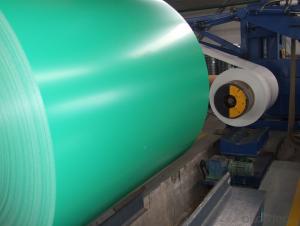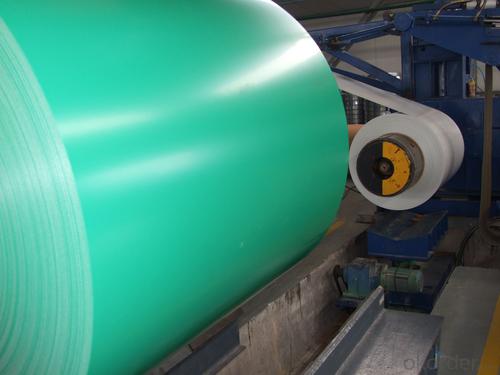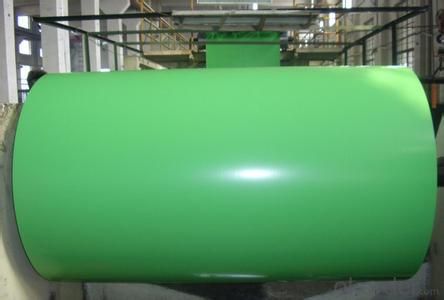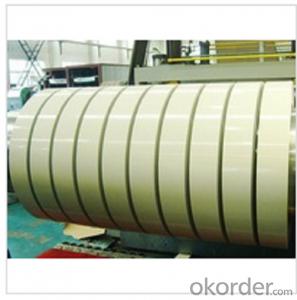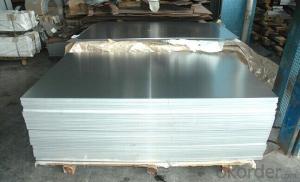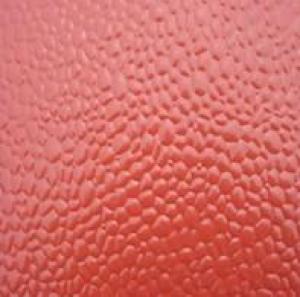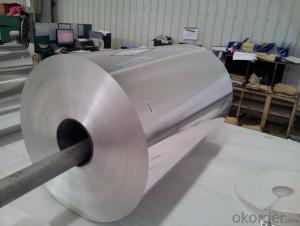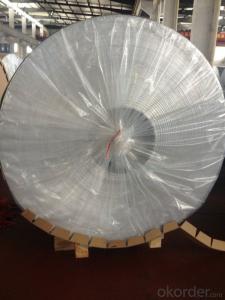5182 Aluminum Coil Price - High Quality Green Color Coating Aluminum Coil
- Loading Port:
- Shanghai
- Payment Terms:
- TT OR LC
- Min Order Qty:
- 5 m.t.
- Supply Capability:
- 10000 m.t./month
OKorder Service Pledge
OKorder Financial Service
You Might Also Like
Specification
1. Specification of Green Color Coating Aluminum Coil with High Quality
Material | Alloy Aluminum 6063,6061,6005 or customer nominated |
Temper | T3, T4, T5, T6 |
Surface | Anodize, electrophoresis, powder coating, PVDF coating, wood grain painting, matted, etc. |
Colour | Any colour based on Standard Germany RAL Mark |
Length | Coating 6.5 meters, Anodizing 6.5 meters, Mill finish 5 meters |
Press Machine | 500-4000 tons all together 64 press lines. |
Fabrication | 1. Windows and doors; 2. Drilling; 3. Bending; 4. Cutting; 5. etc. |
Certificate | ISO 9001 |
Moulding | 1. Using our moulds, no fee; |
2. Using customer drawing, opening mould, usually about 10~50 tons then the moulding can be refunded. | |
3. Mould cost is negotiable base on the order quantity | |
Capability | Annual output 100,000 tons |
2. Application of Green Color Coating Aluminum Coil with High Quality
(1).Interior: wall cladding, ceilings, bathrooms, kitchens and balconies, shutters, doors...
(2).Exterior: wall cladding, facades, roofing, canopies, tunnels,column covers , renovations...
(3).Advertisement: display platforms, signboards, fascia, shop fronts...
3. Feature of Green Color Coating Aluminum Coil with High Quality
*Such coil is specially designed to replace aluminum ingot, due to the high export tax of aluminum ingot, the coil has better price than ingot.
*This type of coil can fit customer's remelting furnace just like ingot, no need to make any change to the production line that was previously used for ingot. The standard coil size and weight is very suitable for the feed gate of furnace.
*This type of coil causes less material wastage than ingot when remelted.
*Our coil is made directly from ore, no need to go though the ingot making process, quality is much better than other suppliers who use ingot scrap to make coil.
Be free from Oil Stain, Dent, Inclusion, Scratches, Stain, Oxide Dicoloration, Breaks, Corrosion, Roll Marks, Dirt Streaks and other defect which will interfere with use
4. Certificate:
SGS and ROHS(if client request, paid by client), MTC(plant provided), Certificate of Origin(FORM A, FORM E, CO), Bureau Veritas and SGS (if client request, paid by client), CIQS certificate
5. Image of Green Color Coating Aluminum Coil with High Quality
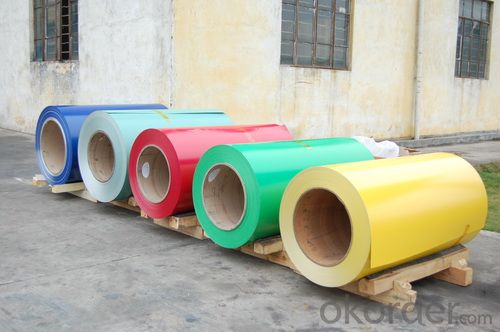
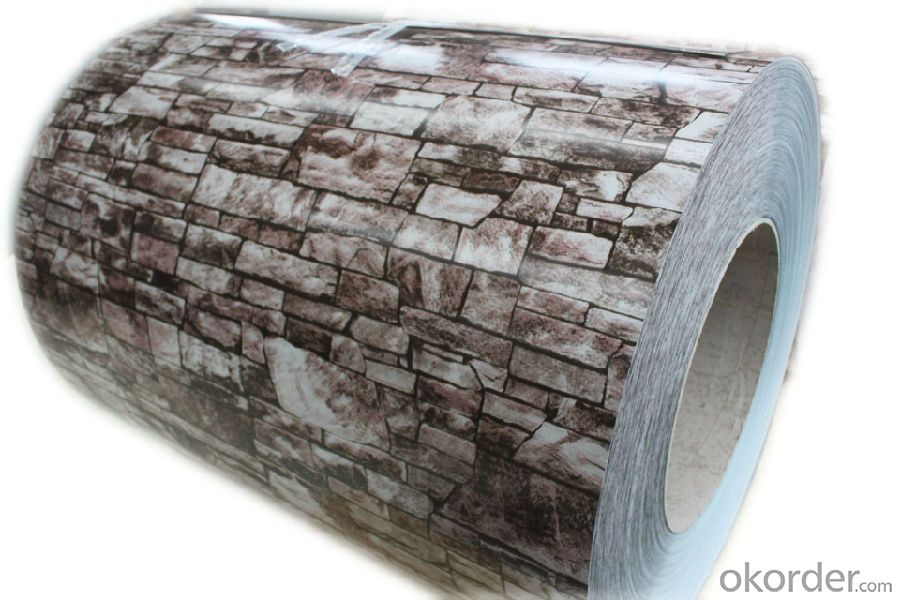
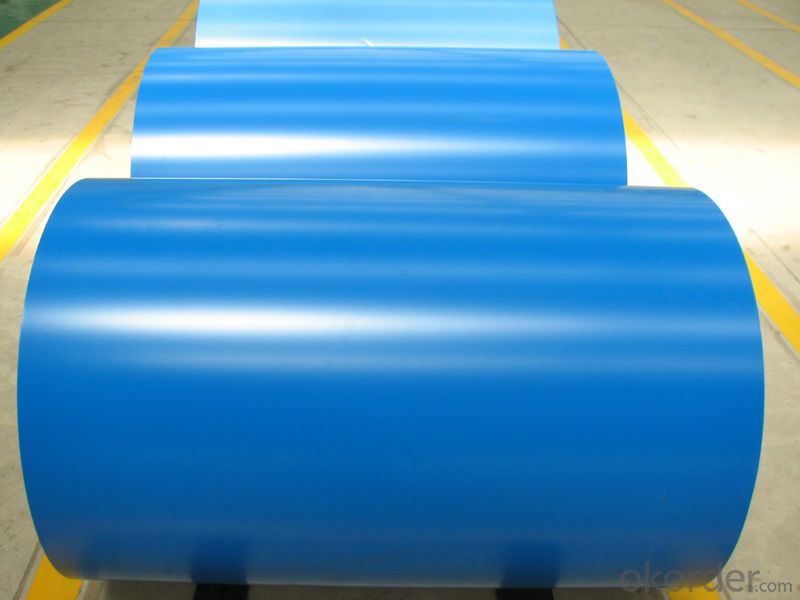
6. Package and shipping of Green Color Coating Aluminum Coil with High Quality
eye to wall
eye to the wall
with wood pallet (wooded case also available)
7. FAQ
1) What is the delivery time?
Dpends on actual order, around 20 to 35 days
2)What is the QC system:
We have QC staff of 20 persons and advanced equipment, each production is with MTC traced from Aluminum ingot lot.
3) What market do you mainly sell to?
Australia, America, Asia, Middle East, Western Europe, Africa etc
- Q: The specification of thermal insulating aluminum coil
- 4-0 In general, the chemical engineering products for thermal insulation is 0. According to the International standard, the thickness tolerance is +-5%.02MM. according to industrial standard, it is +-0. The production crafts are embossed and plain sheet.
- Q: How do aluminum coils contribute to sustainable energy systems?
- Aluminum coils play a crucial role in sustainable energy systems due to several reasons. Firstly, aluminum is a lightweight and highly conductive metal, making it an ideal material for the production of coils used in various renewable energy technologies such as wind turbines, solar panels, and electric vehicles. The lightweight nature of aluminum reduces the overall weight of these systems, thus increasing their efficiency and performance. Secondly, aluminum is abundant in nature and has a high recycling rate. It can be recycled repeatedly without losing its original properties, resulting in significant energy savings and reduced environmental impact. By using aluminum coils, sustainable energy systems can minimize their reliance on virgin materials and promote a circular economy. Furthermore, aluminum coils are corrosion-resistant and have excellent heat transfer properties. This makes them highly durable and capable of withstanding harsh weather conditions, ensuring the longevity and reliability of renewable energy systems. The durability of aluminum coils also reduces the need for frequent maintenance or replacements, thereby minimizing waste generation and conserving resources. Moreover, aluminum is a non-toxic material that poses minimal risks to human health and the environment. Unlike other metals, aluminum does not leach harmful substances into the soil or water, making it a safe choice for sustainable energy systems. Lastly, the use of aluminum coils in sustainable energy systems helps to reduce greenhouse gas emissions. As aluminum is lightweight, it requires less energy to transport and install, thereby reducing the carbon footprint associated with the manufacturing and installation processes. Additionally, the increased efficiency and performance of renewable energy systems using aluminum coils contribute to the displacement of fossil fuel-based energy generation, leading to a reduction in overall carbon emissions. In conclusion, aluminum coils contribute to sustainable energy systems by enhancing the efficiency, durability, recyclability, and environmental friendliness of renewable energy technologies. Their lightweight nature, corrosion resistance, and excellent heat transfer properties make them ideal for various applications, while their abundance and recyclability promote resource conservation and a circular economy. By using aluminum coils, sustainable energy systems can reduce their environmental impact, improve performance, and contribute to a cleaner and more sustainable future.
- Q: How does aluminum ingot be processed to aluminum coil (aluminum sheet)?
- First it should be made into blank and then put on the rolling mill.
- Q: What are the different coil transportation options for aluminum coils?
- There are several different coil transportation options available for aluminum coils. 1. Flatbed Trucks: Flatbed trucks are commonly used for transporting aluminum coils. These trucks have an open top and are equipped with a flat, open trailer bed. The coils are securely strapped or banded onto the bed to prevent any movement during transportation. 2. Coil Racks: Coil racks are specialized transportation equipment designed specifically for carrying aluminum coils. These racks are usually made of steel and are placed inside a truck or trailer. The coils are stacked on the racks, which have dividers to keep them in place and prevent any shifting or damage. 3. Coil Trailers: Coil trailers are trailers that are specifically designed for transporting aluminum coils. These trailers have a unique coil cradle system that securely holds the coils in place during transportation. The cradles are adjustable to accommodate different coil sizes and prevent any movement or damage. 4. Container Shipping: Aluminum coils can also be transported using shipping containers. The coils are loaded into the containers and secured using straps or bracing. This option is commonly used for international transportation, as containers can be easily loaded onto ships or trains. 5. Rail Transport: Rail transport is another option for transporting aluminum coils. Specialized rail cars, known as coil cars, are used for this purpose. These cars have cradles or racks built into them to securely hold the coils during transit. Rail transport is often used for long-distance transportation, as it is a cost-effective and efficient method. Overall, the choice of coil transportation option depends on factors such as distance, cost, and the specific requirements of the coils being transported.
- Q: What are the potential applications of coil-coated aluminum coils?
- Coil-coated aluminum coils have a wide range of potential applications due to their excellent properties and versatility. Some of the key potential applications of coil-coated aluminum coils include: 1. Construction and Architecture: Coil-coated aluminum coils are widely used in the construction industry for various applications such as roofing, wall cladding, facades, and decorative elements. The coils can be easily formed, cut, and shaped to meet specific design requirements, while the coil coating provides durability, weather resistance, and color retention. 2. Transportation: Coil-coated aluminum coils find extensive use in the transportation industry, especially in the manufacturing of automobiles, buses, trains, and aircraft. The lightweight nature of aluminum makes it an ideal choice for reducing fuel consumption and improving energy efficiency. Additionally, the coil coating enhances the corrosion resistance, aesthetics, and overall durability of the aluminum coils. 3. Appliances and Electronics: Coil-coated aluminum coils are commonly used in the manufacturing of appliances and electronics such as refrigerators, air conditioners, ovens, and televisions. The coil coating provides a protective layer that prevents corrosion and extends the lifespan of the products. Furthermore, the aesthetic appeal and color options available in coil-coated aluminum coils contribute to the overall design and aesthetics of appliances and electronics. 4. Signage and Displays: The versatility and visual appeal of coil-coated aluminum coils make them a popular choice for signage and displays. The coil coating enhances the durability, weather resistance, and color vibrancy of the aluminum, making it suitable for both indoor and outdoor applications. Whether it's large billboards, shop signs, or exhibition displays, coil-coated aluminum coils offer a cost-effective and visually appealing solution. 5. Packaging: Coil-coated aluminum coils are extensively used in the packaging industry for various applications such as cans, containers, and lids. The coil coating provides a protective layer that prevents the aluminum from reacting with the packaged contents, ensuring product integrity and safety. Additionally, the lightweight nature of aluminum makes it an eco-friendly choice for reducing packaging waste. 6. Energy and Solar: Coil-coated aluminum coils are increasingly being used in the energy and solar industry. The lightweight and corrosion-resistant nature of aluminum make it an ideal material for manufacturing solar panels and energy-efficient systems. The coil coating further enhances the durability and weather resistance of the aluminum, ensuring long-term performance in various environmental conditions. Overall, the potential applications of coil-coated aluminum coils are vast and diverse, ranging from construction and transportation to appliances, signage, packaging, and energy industries. The combination of excellent properties, such as lightweight, durability, weather resistance, and aesthetic appeal, make coil-coated aluminum coils a preferred choice in numerous sectors.
- Q: This question asks for a comparison between aluminum coil and other types of wire, highlighting their differences.
- <p>Aluminum coil is a type of wire made from aluminum, known for its lightweight, high conductivity, and corrosion resistance. It's commonly used in electrical applications, construction, and packaging. Other types of wire, such as copper wire, have different properties. Copper, for instance, has higher conductivity than aluminum but is heavier and more expensive. Steel wire is stronger and more durable but less conductive and prone to rust. The choice between aluminum coil and other wires depends on the specific requirements of strength, conductivity, cost, and environmental resistance for the application in question.</p>
- Q: How do aluminum coils withstand extreme weather conditions?
- Due to the unique properties of aluminum, aluminum coils can endure harsh weather conditions. Firstly, aluminum's lightweight nature allows it to remain flexible and resistant to bending or warping when faced with strong winds or heavy snow loads. As a result, aluminum coils are less likely to be damaged during extreme weather events like hurricanes or blizzards. Moreover, aluminum possesses a high resistance to corrosion. When exposed to air, it forms a protective oxide layer on its surface, preventing rusting or deterioration caused by moisture or severe weather conditions. This protective layer acts as a barrier against elements such as rain, snow, or saltwater, making aluminum coils highly durable and long-lasting. Additionally, aluminum exhibits high thermal conductivity, enabling it to efficiently dissipate heat. This property ensures that aluminum coils effectively transfer heat away from the system, preventing overheating and potential damage during hot weather conditions. Furthermore, the efficient dissipation of heat contributes to the energy efficiency of aluminum coils. Lastly, aluminum is a non-magnetic material, rendering it unaffected by electromagnetic interference or lightning strikes. This quality makes aluminum coils safe and dependable in areas prone to electrical storms or high levels of electromagnetic activity. To summarize, aluminum coils are designed to endure extreme weather conditions due to their lightweight, corrosion-resistant, thermally conductive, and non-magnetic properties. These characteristics make aluminum coils highly durable, dependable, and suitable for various applications, including HVAC systems, automotive cooling, and electrical wiring.
- Q: What is the maximum coil weight that can be produced?
- Several factors, including the type of material being coiled, the size and capacity of the coiling equipment, and the strength and durability of the coil itself, determine the maximum weight of a coil that can be produced. Generally, the maximum weight of a coil can vary from a few pounds to several tons. However, it is important to consider that exceeding the recommended maximum weight of a coil can result in safety hazards, equipment damage, and compromise the quality and integrity of the coil. Therefore, it is crucial to refer to the manufacturer's guidelines and specifications to ascertain the maximum weight of a coil that can be safely and effectively produced for a specific application.
- Q: What precautions should be taken when operating a welding torch on aluminum coils to ensure safety?
- <p>When using a welding torch with aluminum coils, it's crucial to follow safety measures to prevent accidents and ensure a safe working environment. Always wear appropriate personal protective equipment (PPE), including heat-resistant gloves, safety glasses, and a welding helmet. Ensure the work area is well-ventilated to avoid inhaling fumes. Use a backdraft hood or fume extraction system to capture and remove welding fumes. Keep the work area clean and free of flammable materials. Regularly inspect the torch for any damage or wear. Use the correct type of welding rod for aluminum and ensure the gas supply is compatible with aluminum welding. Never leave a lit torch unattended and always follow the manufacturer's guidelines for safe operation.</p>
- Q: Are aluminum coils suitable for thermal insulation?
- No, aluminum coils are not suitable for thermal insulation. Aluminum is a highly conductive material, meaning it readily transfers heat. This makes it ineffective in preventing heat transfer between different areas or maintaining a desired temperature within a space. For thermal insulation purposes, materials with low thermal conductivity, such as fiberglass, mineral wool, or foam insulation, are preferred as they minimize heat transfer and provide better insulation.
Send your message to us
5182 Aluminum Coil Price - High Quality Green Color Coating Aluminum Coil
- Loading Port:
- Shanghai
- Payment Terms:
- TT OR LC
- Min Order Qty:
- 5 m.t.
- Supply Capability:
- 10000 m.t./month
OKorder Service Pledge
OKorder Financial Service
Similar products
Hot products
Hot Searches
Related keywords
